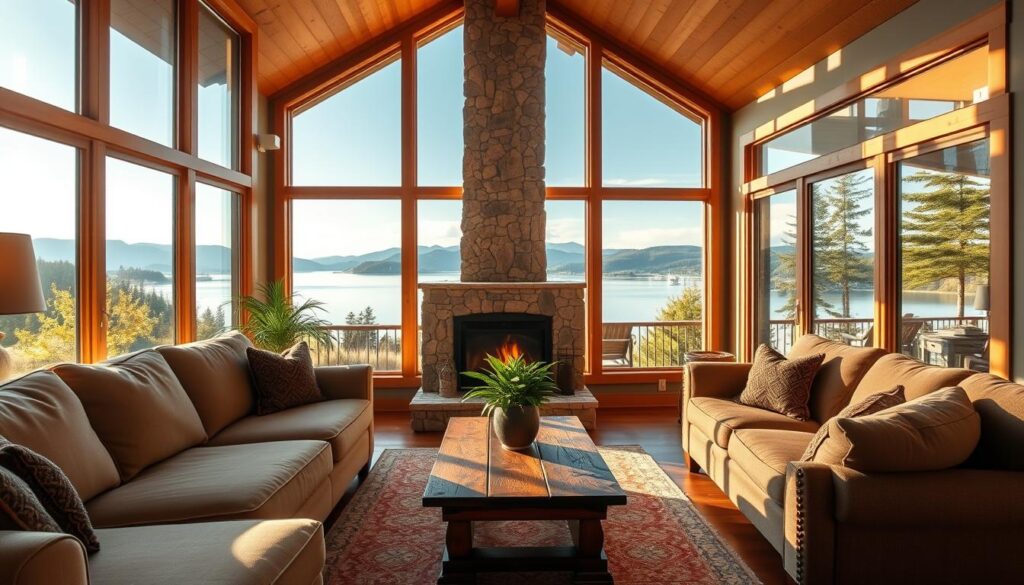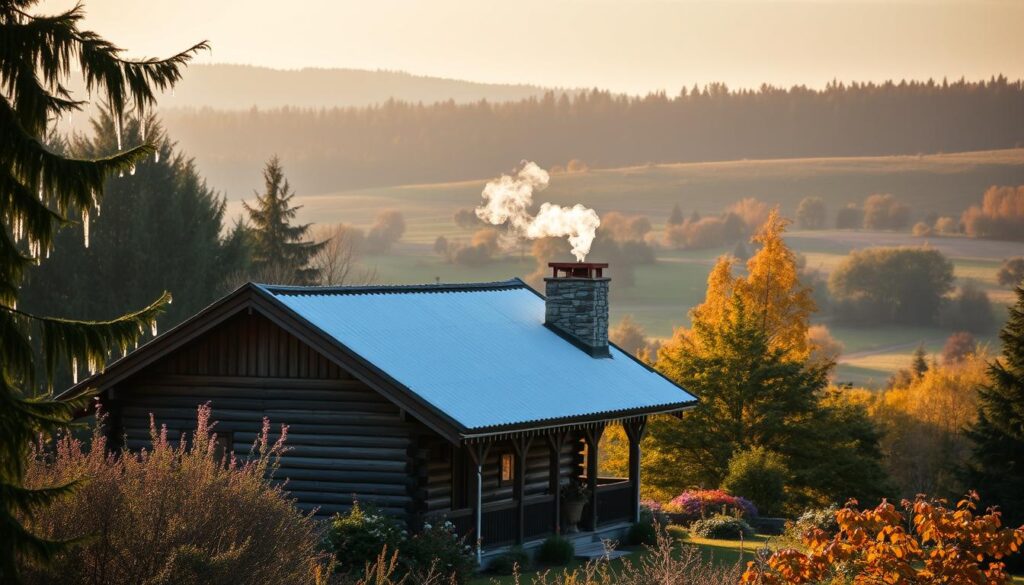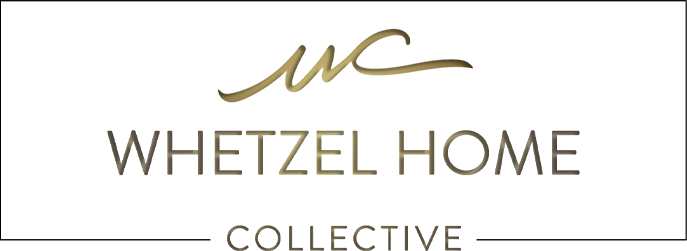Buying a second home is exciting for many Americans. It offers more living space, investment chances, or a personal retreat. At Whetzel Homes Collective in St. George, Utah, we help clients through the complex world of buying investment and vacation homes.
A second home can be a weekend escape or a smart financial move. Whether you want a mountain cabin, beach condo, or rental, knowing how to buy is key. It helps you make a wise choice.
Real estate investments need careful planning and smart thinking. Our experts at Whetzel Homes Collective will guide you. We ensure you choose the right second home that fits your goals and finances.
Key Takeaways
- Second homes offer versatile opportunities for personal use and investment
- Understand the financial implications before making a purchase
- Consider location, purpose, and possible rental income
- Explore various financing options for your second property
- Work with experienced real estate professionals to simplify the process
Understanding Second Homes vs. Investment Properties

Understanding the real estate market is key. Second homes and investment properties are different. They affect your money and taxes in unique ways.
Second homes are for personal use. Investment properties aim to make money. This difference is important for planning and taxes.
Second Home Classification
Second homes have certain rules:
- Located at least 50 miles from primary residence
- Used personally for more than 14 days annually
- Cannot be rented out for more than 180 days per year
- Require lower down payments (5-10%)
Investment Property Requirements
Investment properties have their own rules:
- Primarily purchased to generate rental income
- Higher down payment requirements (15-25%)
- Can be within 50 miles of primary residence
- Stricter credit score requirements (typically 700+)
Tax Implications for Each Type
Taxes work differently for second homes and rental properties. Second homes offer mortgage interest deductions up to $750,000. Rental properties have even more tax benefits, like:
- Full deduction of mortgage interest
- Depreciation write-offs
- Deductions for maintenance and management expenses
Knowing these differences helps you make smart choices. It’s all about reaching your financial goals in the real estate world.
Benefits of Owning a Second Home

Buying a vacation home is more than just a personal escape. The real estate market offers special chances for those looking to grow their property collection. A second home can be a smart financial move, blending personal use with possible earnings.
There are many benefits to owning a second home:
- Financial Diversification: A vacation home can be a great investment, spreading out financial risks across different markets.
- Potential Rental Income: With over a third of U.S. homes rented, there’s a chance to earn extra money.
- Personal Getaway: Make unforgettable family memories in a special vacation spot.
- Retirement Planning: Try out living in the property before you retire.
Tax perks can make a second home even more appealing. Homeowners can deduct mortgage interest up to $750,000 for both homes. Rental income can also help cover upkeep costs, which is common in places like college towns or tourist hotspots.
Choosing the right location is key. Experts say pick a place within a two- to three-hour drive from your main home, unless you’re planning to retire. This makes it easier to manage and visit often.
A second home is not just a property – it’s an investment in your future, your memories, and your financial strategy.
Financial Considerations Before Purchase
Buying a second home needs careful planning and understanding of the economy. Buyers must look at different mortgage options and think about the property’s future value.

Getting a second home involves many important steps. These steps can greatly affect your investment plan.
Down Payment Requirements
Getting a second home requires more money upfront than a first home. Lenders often ask for bigger down payments for investment properties:
- Minimum down payment of 10% for second homes
- Potential down payments up to 20-25% for investment properties
- Higher down payments show more risk for lenders
Monthly Expenses Overview
Your budget must cover more than just the mortgage. Thinking about home equity is key to managing these costs:
- Mortgage payments
- Property taxes
- Insurance premiums
- Utilities
- Maintenance and repair costs
Insurance and Property Tax Planning
Understanding taxes and insurance is part of smart planning. The IRS lets you deduct up to $750,000 of mortgage interest for second homes. This can help with taxes.
Careful financial analysis can turn a second home into a smart investment.
Homeowners should plan to spend about 25% of monthly income on their second home. This ensures they can manage their property well.
How to Buy a Second Home

Buying a second home needs careful planning and smart financial steps. The real estate market is full of chances for those wanting more property. Knowing how to buy a second home can make this journey easier.
Before you start on mortgage financing, remember these key steps:
- Check if you’re financially ready
- Think about how you’ll use the property
- Look into different mortgage options
- Get all your documents in order
Getting your finances in check is key when looking at second homes. Lenders usually want:
- A high credit score (740-799)
- A low debt-to-income ratio (36% or less)
- Enough savings for emergencies
- A big down payment (at least 10%)
There are creative ways to fund your second home. Here are some ideas:
- Home equity loans
- VA loans for military folks
- Using retirement account funds
- Talking to sellers about financing
Successful second home purchases mix smart financial planning with knowing the market.
Having a good mortgage pro and a local real estate agent can help a lot. They guide you through financing choices and find properties that fit your needs and goals.
Location Selection Strategies

Choosing the right spot for a vacation home is a big deal. The real estate market has many options. These options mix fun and making money.
Choosing a location is more than just what you like. You need to think about things that affect the home’s value and use over time.
Proximity and Accessibility Considerations
How far away a vacation home is matters a lot. Here are some interesting facts:
- 43% of second home buyers buy places 500+ miles from their main home
- People from different places have different preferences for vacation homes:
- Midwest: 33%
- South: 30%
- West: 20%
- Northeast: 17%
Market Analysis Insights
When picking a location, think about these important things:
| Factor | Consideration |
|---|---|
| Rental Income | Check if there’s a demand for short-term rentals |
| Property Value | Look at how much the property has grown in value |
| Amenities | Think about what’s nearby and what you can do there |
Future Growth
Smart investors look at more than what’s happening now. Waterfront homes, for example, are 50% more valuable. This shows they could be worth a lot more later. Also, buyers from other countries, like those in Florida, help make certain places more attractive.
Choosing a vacation home well means mixing what you want with good research. This way, you can enjoy your home and maybe even make money from it.
Mortgage Options for Second Homes

Getting a mortgage for a second home needs careful planning. You must know the special rules for these loans. Buyers face different rules than those for their main homes.
Lenders look at several things when deciding on second home loans. Your credit score is very important. Most lenders want a score of 620 or higher for good rates.
- Down payment requirements range from 10-20%
- Higher interest rates compared to primary residence loans
- Stricter debt-to-income ratio qualifications
- Demonstrated cash reserves of 2-6 months of mortgage payments
There are many ways to finance a second home. Fixed-rate mortgages mean steady payments. Adjustable-rate mortgages might start with lower rates. But, loans for investment properties often need bigger down payments and stricter rules.
Using home equity can help fund a second home. You can use your current home’s value for more money. But, this must be done with careful thought about your finances.
| Mortgage Type | Down Payment | Interest Rate |
|---|---|---|
| Conventional Second Home Loan | 10-20% | Slightly Higher |
| Investment Property Loan | 20-25% | Higher |
| Home Equity Loan | Varies | Competitive |
To get a mortgage for a second home, you need to be well-prepared. Keep your credit strong, have enough cash, and know the loan rules well.
Property Management Essentials

Managing a second home needs careful planning and quick actions. It’s more than just keeping it clean. It’s about keeping your investment safe and making it profitable as a rental or personal getaway.
Maintenance Planning Strategies
Good property management starts with a solid maintenance plan. Smart owners plan to keep their vacation home in top shape. This helps keep its value and function.
- Create a seasonal maintenance schedule
- Budget for routine repairs and unexpected expenses
- Conduct quarterly property inspections
- Establish relationships with local maintenance professionals
Remote Property Management Solutions
Being far away doesn’t mean you can’t manage your property well. Today’s tech and professional services make it easy to check on and care for your rental from anywhere.
- Install smart home monitoring systems
- Use digital platforms for remote communication
- Consider hiring professional property management services
- Implement keyless entry systems
Security Considerations
Keeping your vacation home safe needs a strong security plan. Good security stops problems and gives you peace of mind.
- Install complete security systems
- Use motion-activated cameras
- Create digital access protocols
- Maintain property appearance to deter intruders
Good property management is about being proactive, planning smart, and using tech to protect your investment.
By following these property management tips, your second home will stay valuable. It can earn rental income and be a personal retreat for years.
Understanding the Rental Market
Understanding the rental market is key to success. The rise of Airbnb and VRBO has changed the game. Now, property owners can earn more by renting out their places.
To succeed, you need a solid plan. Focus on how your property stands out and the experience you offer guests. Here are some tips:
- Study local demand and seasonal trends
- Price your property competitively
- Use great photos in your listings
- Keep guests happy and ask for reviews
Where you are matters a lot. Properties near attractions or downtown areas make more money. Think about:
- Being close to tourist spots
- Local amenities and how easy it is to get around
- If people will want to rent it all year
- The local economy’s growth
Money matters too. Short-term rentals can be very profitable but need careful handling. Know your taxes and expenses to make the most money.
Good research and advice can turn a second home into a money-maker.
Managing a rental property well means doing your homework, being flexible, and focusing on guest happiness.
Legal Considerations and Requirements

Buying a second home means you must understand many laws. Knowing these laws is key to managing your property well. It helps you succeed in the real estate market.
When you rent out your home, you need to know all local rules. These rules can change how you make money from your property.
Zoning Laws and Property Use
Zoning laws are very important. They decide how you can use your home. Local rules might limit:
- What kind of property it is
- How long you can rent it out
- Who can live there
- What changes you can make
Homeowners Association (HOA) Restrictions
HOA rules can also be a challenge. They might:
- Limit how long you can rent it out
- Require you to live there
- Set high standards for upkeep
- Limit changes you can make
Rental Regulations and Tax Implications
Knowing the rules for renting is vital. Here are some important things to remember:
| Legal Consideration | Potential Impact |
|---|---|
| Tax Classification | Renting over 14 days a year can change how you’re taxed |
| Capital Gains | You might be able to delay taxes with a 1031 exchange |
| Asset Protection | Creating an LLC can keep your personal stuff safe |
It’s very important to talk to a tax expert. They can help you understand the laws and taxes of owning a second home.
Working with Real Estate Professionals

Buying a second home needs expert help. Only 2.5% of new mortgages are for second homes. This makes finding the right professionals key for a good investment.
Choosing the right real estate team can change your second home buying journey. Important professionals to look for include:
- Local REALTORS® with vacation home expertise
- Mortgage lenders specializing in second home financing
- Tax advisors familiar with investment property regulations
- Property management specialists
When picking a REALTOR®, look for those with special certifications. The RSPS (Residential Specialization in Second Homes) certification from the National Association of REALTORS® is a good sign.
| Professional Type | Key Responsibilities |
|---|---|
| REALTOR® | Local market insights, property selection |
| Mortgage Specialist | Financing options, loan structure |
| Tax Advisor | Tax implications, deduction strategies |
Pro tip: Seek professionals who understand the nuanced differences between second homes and investment properties to maximize your real estate strategy.
The right team can mean the difference between a challenging purchase and a seamless investment experience.
Check if the professionals have experience with second home sales. Look at their track record in your desired market. They should know local laws, rental markets, and special financing needs for second homes.
Cost Analysis and Budgeting

Buying a second home needs careful financial planning. You must understand the real estate market well. There are many financial factors to consider beyond the initial cost.
Investing in a second home requires smart budgeting. You should plan for:
- Down payment (15-30% depending on property type)
- Monthly mortgage financing costs
- Property taxes and insurance
- Maintenance and repair expenses
- Potential rental income management
Getting a mortgage for a second home usually means higher interest rates. Lenders have more stringent qualification criteria than for primary homes. You might need to save 15% for personal use or 25-30% for rentals.
Experts suggest saving for unexpected costs in a separate account. Don’t forget to include these in your budget:
- Utility costs
- Landscaping and cleaning services
- Transportation expenses
- Potential renovation investments
Remember, capital gains tax is a big deal in real estate. If you’re in a higher tax bracket, you could face up to 28% tax on property gains. So, planning your finances carefully is key.
Successful second home ownership blends careful financial management with strategic investment thinking.
Insurance Requirements and Coverage
Getting insurance for your investment property is key. Buying a vacation home means you face unique insurance challenges. Knowing these can help you avoid big financial losses and give you peace of mind.

Getting insurance for a second home needs careful planning. Owners must look for special protection beyond what’s usual for homes.
Property Insurance Options
Insurance for a second home is different from your main home’s. Insurers look at things like:
- How often you use it
- Where it’s located
- If you rent it out
- If it’s near natural disaster areas
Liability Coverage Considerations
Liability insurance is very important when you manage a rental property. It helps protect you from accidents that guests might have.
| Coverage Type | Recommended Protection Level | Average Cost |
|---|---|---|
| Standard Property | $300,000-$500,000 | $1,200-$2,500/year |
| Rental Property | $500,000-$1,000,000 | $2,500-$4,500/year |
Natural Disaster Protection
Owners of investment properties need to think about natural disasters. Special coverage for floods, hurricanes, and earthquakes is a must in high-risk areas.
“Comprehensive insurance isn’t an expense—it’s protection for your real estate investment.”
Planning your insurance well can help protect your vacation home. It keeps it a valuable asset.
Seasonal Considerations and Maintenance

Keeping a vacation home in good shape needs careful planning and action. It’s important to do regular maintenance to protect your investment. This ensures your property stays in great condition all year.
Managing a rental property well means watching out for seasonal changes. Each season brings its own set of challenges. You need to know how to handle them.
Winter Preparation Checklist
- Drain plumbing pipes completely
- Shut off water supply lines
- Insulate vulnerable water pipes
- Apply heat tape to prevent freezing
- Service HVAC system
- Remove outdoor furniture cushions
Smart home tech can make managing your property from afar easier. With WiFi-enabled thermostats, security cameras, and lights, you can keep an eye on your home from anywhere.
Maintenance Cost Considerations
| Maintenance Category | Estimated Annual Cost |
|---|---|
| Cleaning Services | $500 – $1,500 |
| Yard Work | $300 – $800 |
| Utility Maintenance | $600 – $1,200 |
| Repairs and Upkeep | $1,000 – $2,500 |
Pro Tip: Getting local pros for regular upkeep can save you money and keep your property’s value up. It’s smart to build relationships with good handymen, landscapers, and cleaners in your area.
Pre-Visit Preparation
- Perform deep cleaning
- Check home supplies
- Wash and prepare linens
- Unpack seasonal clothing
- Inspect recreational gear
Regular upkeep keeps your vacation home safe from problems like frozen pipes and wood decay. With a solid seasonal plan, you can relax and keep your property’s value high.
Investment Opportunity and Property Appreciation

Buying a second home is more than just a vacation spot. It’s about making a smart investment. Understanding how property values grow and the long-term financial benefits is key.
Several factors are important when looking at an investment property:
- Location’s growth chances
- Local market trends
- Rental income chances
- Future development plans
The vacation home market offers special investment chances. Choosing the right property can lead to big gains through value increase and rental income.
| Investment Metric | Recommended Benchmark |
|---|---|
| Monthly Rental Income | Minimum 2% of purchase price |
| Down Payment | 20-30% for investment properties |
| Personal Use Requirement | Minimum 14 days per year |
Real estate investments can help fight inflation. As costs of living go up, property values often rise. This is true in areas with high demand and good infrastructure.
Successful real estate investing needs thorough market research and smart financial planning.
By studying market trends, rental income, and long-term value, investors can turn a vacation home into a valuable financial asset. This is within the ever-changing real estate market.
Key Takeaways for Buying a Second Home in St. George, Utah
Buying a second home is a big step in your real estate journey. It could be for a vacation home or an investment. The process needs careful planning and smart decisions.
Being financially ready is key to a successful purchase. You should check your savings, credit score, and long-term goals. Look at your income, debt, and if you can rent it out.
At Whetzel Homes Collective, we help you buy a second home in St. George, Utah, and more. We see each property as more than an investment. It’s a chance for new experiences, income, and happiness. Call us at (435) 334-1544 to start your second home journey.
Getting your perfect second home starts with knowledge and preparation. Think about location, financing, and rental chances. A good second home brings joy and financial benefits.
